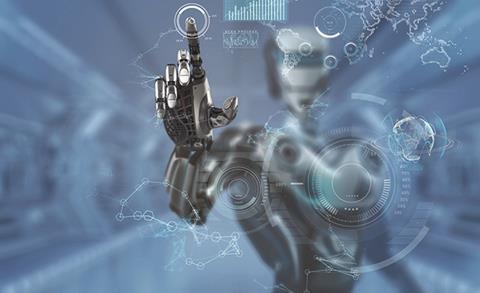Around 200 years ago, the industrial revolution heralded the era of steam-powered engines that transformed manufacturing. In turn, the advent of electricity in the late 1800s effectively disrupted the steam process, leading to the alteration of the factory layout and the creation of the production line.

The disruption of the ‘traditional’ steam engine by electrical power did not happen overnight: it took education and time. Even though electricity increased efficiency by more than 200%, change wasn’t implemented until the ways in which we worked were reinvented.
We are now arguably in a data revolution, moving on from the advancements of the internet, with new technologies able to revolutionise how we work. This is something that will have a direct impact on the property industry.
Much like the impact of electricity on the future of factory working, change will be slow until companies learn to adapt to new ways of thinking, a new set of processes and a new structure.
After the industrial revolution, it took the retirement of existing management - a generation - for industries to adapt.

In my opinion, the data revolution will herald one of the biggest advances: artificial intelligence (AI). The use of AI to automate various tasks will disrupt any data-led or process-driven industry, whether that be law, finance or property.
We are already seeing the application of AI seep into work streams - JP Morgan recently created software called COIN for contract intelligence, which does in seconds something that in combination takes lawyers 360,000 hours annually.
Hubble recently announced its intention to use its new investment to create an AI element for its platform - a great example of one of the many companies looking to change the status quo of how we address data and process in property.
Increasing efficiency
Ultimately it comes down to increasing efficiency and providing the best possible tools to make effective decisions. Just look at the investment world and the performance of quant funds to see the benefits and successes of a data-led approach.
What we are effectively seeing is creative destruction: successful new innovation destroying old and outdated methods. This threat of disruption and competition also prevents stagnation and in turn keeps an industry alive.
With the property sector, perhaps we will need a division of labour between mind and machine. The data revolution is here. Resistance will merely slow it down rather than prevent it, but by combining it with our specialist industry expertise we can jump to a more efficient, more productive and more profitable way of working.
AI’s ability to increase productivity and change workflow has significant implications for our future. It’s greater than any other form of automation we’ve seen in recent years. For example, the stellar rise of the Uber driver will in turn be replaced by driverless cars.
As with the industrial revolution, there will also be similar change implications for the workforce and, if not addressed early on, many may lose their jobs. So we must learn from the mistakes of the past and take human value into account. New technology such as AI is introduced ostensibly to increase human efficiency and it must not come at the expense of human jobs.
Now is the time to start addressing regulation and contingency plans before Uber drivers, factory workers or even property agents find themselves without income or relevant skillsets.
Just as effectively harnessing the data revolution will require the restructuring of business, we must also look to reskill and reorganise the fabric of society. At the moment, we are ahead of the revolution but without action we will soon find ourselves losing out to the machines.































No comments yet